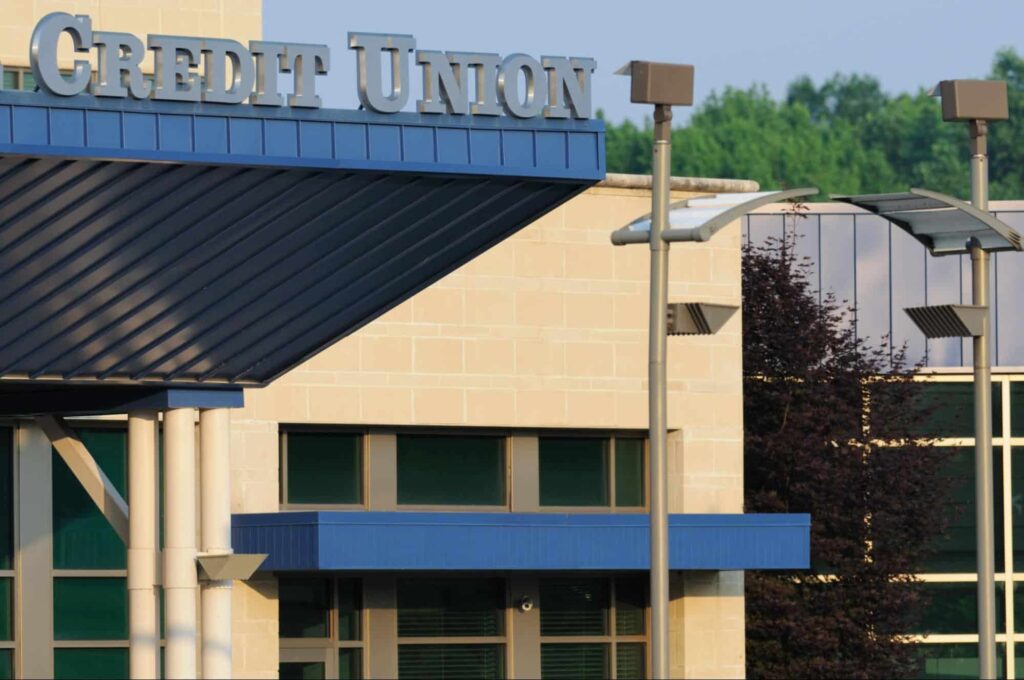Credit Unions and Bankruptcy: What You Need To Know
If you bank with a credit union, or looking to open a new bank account, you may wonder how a bankruptcy will affect your membership. When credit union members file for bankruptcy, can they still bank with the credit union? Do traditional banks and credit unions respond differently when members file for bankruptcy?

If you’re considering filing for bankruptcy, and your checking account, car note, mortgage payment, or credit cards are held with a credit union, our Las Vegas bankruptcy attorneys share your options.
We can help you get the best outcome from your bankruptcy filing. Contact a bankruptcy attorney today.
How Are Credit Unions and Banks Different?
Credit unions and traditional banks are both financial institutions that offer services to their members, including:
- Checking and saving accounts
- Personal loans
- Car loans
- Mortgages
- Credit cards
However, they also differ in many ways. The most significant difference between the two is that banks operate for profit while credit unions are community-based, non-profit institutions. This means that credit unions generally have lower fees, reduced monthly payments, and better interest rates than for-profit banks.
Another difference between banks and credit unions is exclusivity. Credit unions are set up as cooperatives and cater to members with shared interests, common community bonds, or who meet membership requirements. When a member shows financial risk, credit unions often take more drastic measures. The institution may freeze your account, cancel your membership, or more, depending on the circumstances.
How Do Credit Unions Differ From Regular Banks When It Comes to Bankruptcies?
Credit unions and traditional banks respond differently to bankruptcy filings by their members. After filing for bankruptcy, you can generally continue to do business with a conventional bank. However, if you have debt with a credit union that is discharged under Chapter 7 bankruptcy or Chapter 13 bankruptcy, they have the freedom to discontinue business with you entirely.
Are Credit Unions More Likely To Give a Personal Loan After Filing Bankruptcy Than a Bank?
Can you get credit union loans after bankruptcy? It’s possible to get a loan from a credit union even if you have bad credit or a bankruptcy on your credit report. It may be in the form of a secured card or a low credit limit so you can work on improving your credit score.
Because unions are owned by their members, they don’t have the pressure to make money for shareholders. This allows for more freedom when considering loan applicants when compared to commercial banks.
Also, credit unions cater to their members and may decide to issue credit based on your history with the institution. However, it’s important that you speak with service representatives to see if you qualify for a loan. You may need to rebuild your credit or improve financial stability before applying for a loan with bankruptcy-friendly credit unions.
Can I Keep My Mortgage and Credit Card Debt and Continue to Bank With My Credit Union?
By keeping your mortgage and your credit card or personal loan, you can continue to bank with your credit union. While your other debts will be discharged, clear, honest communication with your credit union about a bankruptcy filing in progress will allow you to continue banking without interruption. Of course, this means that the debt you have with your credit union will not be discharged through bankruptcy.
If you choose this option, you will need to settle on a reaffirmation agreement for your credit card and personal loan balance (and possibly your mortgage). Reaffirmation gives your creditor the right to go after you if you fail to make payments after the bankruptcy.
Work with experienced bankruptcy professionals. Contact our bankruptcy lawyers to learn more about our services.
What If I Eliminate Credit Card Debt But Keep My Mortgage?
If you exempt your mortgage from your bankruptcy filing, your credit union cannot foreclose on your home unless you fail to pay. Under this option, you will no longer be able to bank with your credit union—but you won’t lose your home.
The credit union will not allow you to close your credit card for bankruptcy or personal loan accounts completely if you still owe money, but you don’t want to place any new money in these accounts either. Once you stop paying, the credit union has the right to seize any funds.
What Is Cross-Collateralization?
A common practice within credit unions is cross-collateralization1. It’s a way for unsecured loans to become secured debts by using collateral from one credit union loan to secure another. Because secured and unsecured debts are treated differently when filing for bankruptcy, it’s crucial to understand what this means.
For example, you go through your credit union for a car loan. As a secured debt, you understand that the credit union can repossess the car if you fail to repay the loan. However, through cross-collateralization, the credit union may be able to use the car as collateral for other loans, such as credit cards.
Why does this matter? If your intention is to discharge your credit card debt by filing bankruptcy, you’ll be required to return the car. Because the car is collateral on the credit card debt, you’ll either need to return it or enter into a reaffirmation agreement and continue making payments.
Need legal help with your bankruptcy? Contact our team to schedule a free consultation.
What Are Set-Offs?
Credit union members considering bankruptcy should also be aware of set-offs2. Your credit union may have the right to withdraw money from your checking or savings account to recover losses that resulted from your bankruptcy. For example, the credit union can take your remaining savings account funds to cover part of a debt discharged in bankruptcy.
Before filing for bankruptcy, it’s crucial to stop any recurring deposits to your credit union checking or saving accounts. The credit union will most likely freeze your account after filing for bankruptcy, cutting off your access to the funds. If you have direct deposits going into those accounts, the credit union can withdraw this money to cover any remaining debt.
How Can Filing Bankruptcy Help?

If you are completely overwhelmed by debt, the last option is to have all of your debts discharged. This can help you rebuild a better credit history in the long run. But in the short term, your credit union will be unwilling to do any future business with you.
Ultimately it’s important to make the choice that best suits your needs. Remember that losing relationships with one credit union does not mean that you are closing the door on all future financial opportunities.
If you would like an experienced bankruptcy attorney to help assess your individual situation, contact DeLuca & Associates at (702) 252-4673 to request a free consultation. Our experienced team is ready to help you get the fresh start you need with expert legal advocacy and representation.
Sources:
1Chen, J. (8 April 2022). Cross Collateralization. Investopedia. Retrieved 23 June 2022.
2Reiter, M. Bank Setoffs. Nolo. Retrieved 23 June 2022.







